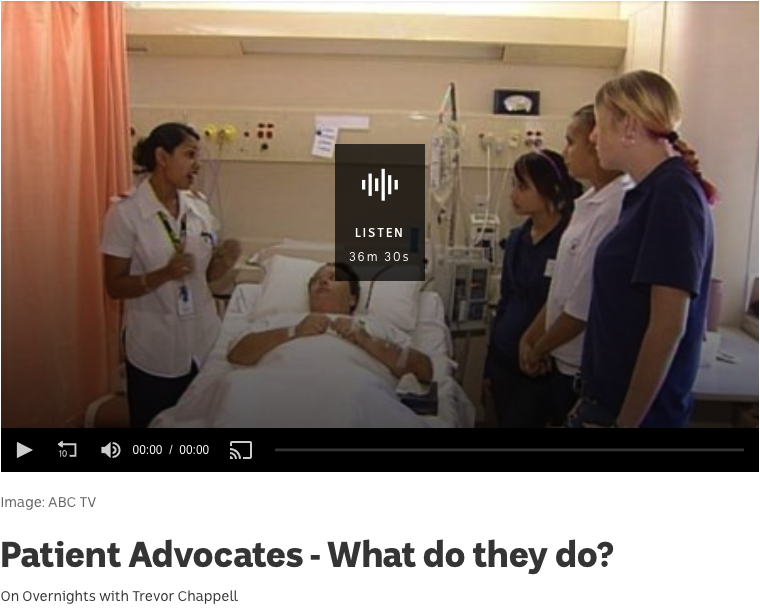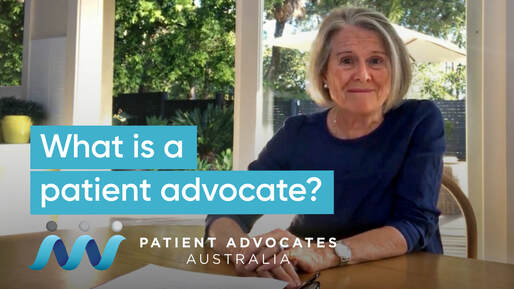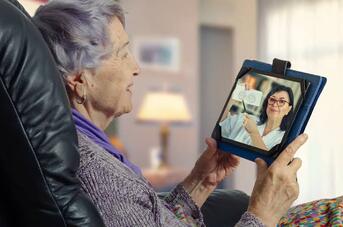Being a patient can be isolating and daunting: examinations, medications, diagnosis, treatment options. Even just managing chronic illness. All of these things can easily overwhelm a person, no matter how old, educated or stoic they are. We imagine ourselves to be the masters of our bodies, but sometimes we are dealt an uneasy hand and suddenly everything changes.
How do you make decisions? Who can you turn to?
An experience patient advocate with extensive experience in healthcare.
How do you make decisions? Who can you turn to?
An experience patient advocate with extensive experience in healthcare.
What is a patient advocate?
Patient Advocacy explained:
There is a growing trend worldwide of the expectation that healthcare should be evidence based, patient centred and collaborative. The average person does not have the knowledge, skills or confidence to look after their own best interests in the healthcare field. Additionally, when someone is unwell they are least able to fend for themselves.
We advocate when things are going wrong or who act as case managers when healthcare is uncoordinated, hard to understand, stalled or poorly communicated. We join with patients (in person or by Telehealth) either in hospital or at medical appointments in order to ask questions, explain disease concepts and treatment options and provide patients and family members with confidence that they are getting good care. An advocate/case manager will ensure a client's preferences in treatment options are discussed.
Practical support:
Emotional support:
There is a growing trend worldwide of the expectation that healthcare should be evidence based, patient centred and collaborative. The average person does not have the knowledge, skills or confidence to look after their own best interests in the healthcare field. Additionally, when someone is unwell they are least able to fend for themselves.
We advocate when things are going wrong or who act as case managers when healthcare is uncoordinated, hard to understand, stalled or poorly communicated. We join with patients (in person or by Telehealth) either in hospital or at medical appointments in order to ask questions, explain disease concepts and treatment options and provide patients and family members with confidence that they are getting good care. An advocate/case manager will ensure a client's preferences in treatment options are discussed.
Practical support:
- Asking relevant medical questions on behalf of the patient or other supporting persons
- Ensuring the patient and their support network understand the advice and information provided by healthcare providers
- Letting the provider know that the patient has an expert supporter onboard
- Facilitating an ongoing relationship with a medical practitioner/hospital staff
- Exploring and informing the patient and family members of the available medical resources
- Alleviating confusion or conflict between the patient and the physician, or between practitioners
- Arranging a second opinion when the patient is concerned about the information provided by the treating professional
- Arranging specialist appointments
- Liaising with private health insurers to settle disputes or clarify misunderstandings
- Negotiating or intervening when care standards are sub optimal
- Exploring access for relevant clinical trials
- Compiling and submitting a complaint about care.
Emotional support:
- Accompanying the patient and other supporting persons to medical appointments which can be invaluable when complex or distressing information is likely
- Providing regular contact with carers, practitioners, nurses, as well as the patients, to ensure satisfactory medical support is being provided consistently over a period of time
- Monitoring the patient’s sense of wellbeing, including while travelling or during changed circumstances
- Tailoring support to individual needs: whether in person, by telephone, text message or email
Telehealth is here to stay!
If consulting with your doctor from the comfort, convenience and safety of your own home appeals, we can set this up for you and be part of the meeting so you are heard and so you understand what's said. If you wish, we can include your family member in New York in the meeting too!
The benefits for patients of Telehealth include:
If consulting with your doctor from the comfort, convenience and safety of your own home appeals, we can set this up for you and be part of the meeting so you are heard and so you understand what's said. If you wish, we can include your family member in New York in the meeting too!
The benefits for patients of Telehealth include:
- Lower costs: Some research suggests that people who use telemedicine spend less time in the hospital, providing cost savings. Also, less commuting time may mean fewer secondary expenses, such as childcare and gas.
- Improved access to a wider range of services and specialists: Telemedicine makes it easier for people with disabilities to access care. It can also improve access for other populations, including older adults and people who are geographically isolated. With Telehealth, that specialist comes to you!
- Preventive care: Telemedicine may make it easier for people to access preventive care that improves their long-term health. This is especially true for people with financial or geographic barriers to quality care where evidence shows that preventive telemedicine improves health outcomes.
- Convenience: Telemedicine allows people to access care in the comfort and privacy of their own home. This may mean that a person does not have to take time off of work or arrange childcare.
- Slowing the spread of infection: Going to the doctor’s office means being around people who may be sick, often in close quarters. This can be particularly dangerous for people with underlying conditions or weak immune systems. Telemedicine eliminates the risk of picking up an infection at the doctor’s office.
- You will not be kept in a waiting room by doctors who keep you waiting. You will be safe and comfortable at home.
What are the responsibilities of a Patient Advocate ?
An advocate is not there to make decisions for the patient or their support persons. They are not clinicians or care givers. They don't give advice about treatments or clinical care. They provide a voice so that a patient is heard, clarify confusing or overwhelming information and help the affected person through a stressful time. They co-ordinate care, source specialist doctors and second opinions, ensure communication between doctors and between family members and eliminate duplication or omission of services.
An advocate does provide legal or healthcare advice. They do not supplant a Medical Power of Attorney, give financial advice, nor do they replace a next-of-kin or a carer.
Are Patient Advocates qualified ?
A professional patient advocate will have a specialist advocacy qualification and have a recent history in clinical patient care and management. Experience in a health or hospital field is useful but knowing the skills and boundaries of patient advocacy is essential. An advocate sheds the constraints of any previous healthcare role and simply advocates. They are health literate, know how to navigate the healthcare system and have qualified as an independent patient advocate . They understand medical terminology and have the training to translate it to language accessible to the patient.
During your initial contact, you should determine whether the advocate will suit your needs. This interview will help you decide whether you can establish rapport and develop the required level of trust. You can also evaluate whether the cost of services is affordable and valuable to you.
FAQs.
When patients feel isolated and overcome by their medical situation, they need a trusted supporter, both practical and emotional. The Australian Commission on Safety and Quality Healthcare asserts that all patients have the right to feel respected, connected and in control, and to be armed with the knowledge and confidence to make decisions. Evidence is clear that many patients are intimidated by doctors and feel they cannot make themselves heard or understood. Patients with effective supporters get the best outcomes and are less stressed. Patient advocates and case managers are not confronting for doctors: they are valued team members.
Who is best to Advocate for you?
Every patient needs an advocate. Family or friends are a good starting point but try to make your advocate just one person. It is common for family members/advocates to hit barriers when dealing with healthcare providers such as access and communication. When that happens, you need a professional advocate who will not be ignored. It is advisable to choose an advocate who is health literate, available, emotionally neutral, a skilled communicator and experienced across the Health, disability and Aged Care systems.
Professional advocate or family member/trusted friend?
Not every patient needs a professional patient advocate but every person does need someone by their side and on their side. The best option is to get the right mix of input at the various stages of your healthcare.
A family member or trusted friend is important for emotional support. Having someone who is abreast of your health management across all your providers and hospitals and understands your emotional state and your wishes is invaluable to ensure optimal health outcomes.
The language of healthcare is difficult and the delivery system often almost incomprehensible: frequently patients and their families find themselves confused and stressed. It assumes that patients have the knowledge, expertise and energy to fend for themselves. An advocate will assist the patient to acquire the knowledge that is fundamental to the myriad of informed decisions they will need to make. An professional advocate will teach you to become a self advocate.
AUSTRALIA WIDE PATIENT ADVOCACY
We provide patient advocacy for clients in all states and regions of Australia:
NSW, Victoria, Queensland, WA, SA, ACT, Tas and NT.
We provide patient advocacy for clients in all states and regions of Australia:
NSW, Victoria, Queensland, WA, SA, ACT, Tas and NT.



